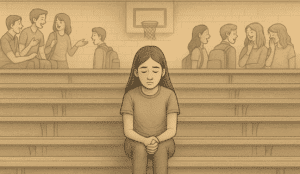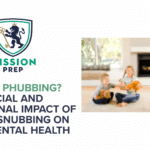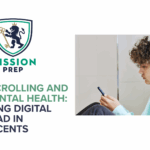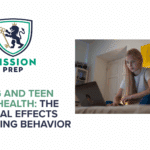Key Takeaways
- Parenting teens with ADHD requires specialized strategies beyond traditional parenting approaches. The 5 C’s framework (Consistency, Self-Control, Compassion, Collaboration, and Celebration) provides an evidence-based roadmap.
- Consistency in routines and expectations creates the structure ADHD teens desperately need, reducing anxiety and improving functioning across all environments.
- Self-control in parents directly models the emotional regulation skills teens with ADHD struggle to develop; your calm response during conflicts becomes their internal template.
- Mission Prep offers specialized residential and inpatient ADHD programs that combine behavioral therapy, group counseling, emotional regulation training, and family therapy in structured environments designed to help teens develop lasting coping skills and self-regulation strategies.
ADHD in Teens: Why Traditional Parenting Often Fails
The teenage years are challenging for any parent, but when ADHD enters the picture, standard parenting tactics can actually worsen the situation.
Teenagers with ADHD aren’t just being difficult, their brains are literally wired differently. The prefrontal cortex, responsible for impulse control, planning, and emotional regulation, develops more slowly in teens with ADHD.
This is why conventional parenting wisdom which often emphasizes consequences and willpower fails. Saying “Just try harder” to a teenager with ADHD without the right strategies is like trying to run a marathon with a sprained ankle. The neurological differences mean they need different supports, not just more discipline or stricter boundaries.
Understanding The 5 C’s Framework
The 5 C’s framework is built on decades of clinical experience and neuroscience research into how the ADHD brain functions. The 5 Cs stand for:
- Consistency: Creating predictable environments that reduce anxiety and confusion
- Self-Control: Managing your own reactions to model emotional regulation
- Compassion: Understanding the ADHD brain and separating the teen from the behavior
- Collaboration: Working together on solutions rather than imposing them
- Celebration: Recognizing progress and building on strengths
These C’s work synergistically to address both the behavioral challenges and the emotional needs of teens with ADHD. By implementing these strategies consistently, you will notice significant improvements in both your relationship with your teen and your teen’s overall functioning.
| Mission Prep Healthcare: Adolescent Mental Health Care Mission Prep Healthcare specializes in mental health treatment for teens aged 12-17, offering residential and outpatient programs for anxiety, depression, trauma, and mood disorders. Our therapies include CBT, DBT, EMDR, and TMS, tailored to each adolescent’s needs. With a structured, supportive environment, we integrate academic support and family involvement to promote lasting recovery. Our goal is to help teens build resilience and regain confidence in their future. Start your recovery journey with Mission Prep Healthcare today! |
How to Parent Teens with ADHD Using The 5 C’s
1. Consistency: The Foundation of ADHD Teen Management
For teens with ADHD, the world can feel chaotic and unpredictable. Their internal regulation systems don’t automatically create the structure neurotypical brains develop, so they rely heavily on external structure.
When expectations, routines, and consequences remain steady, teens with ADHD can devote their mental energy to growth rather than constantly trying to figure out the changing rules.
Creating Predictable Routines That Stick
Creating effective routines for teens with ADHD requires more than just making a schedule. Involve your teen in developing these routines so they have ownership in the process.
Start with just one routine at a time, perhaps morning or homework time, and keep it simple with clear visual reminders. Many parents find success using digital tools like reminder apps that teens respond to better than verbal prompts..
Setting Clear Boundaries Without Power Struggles
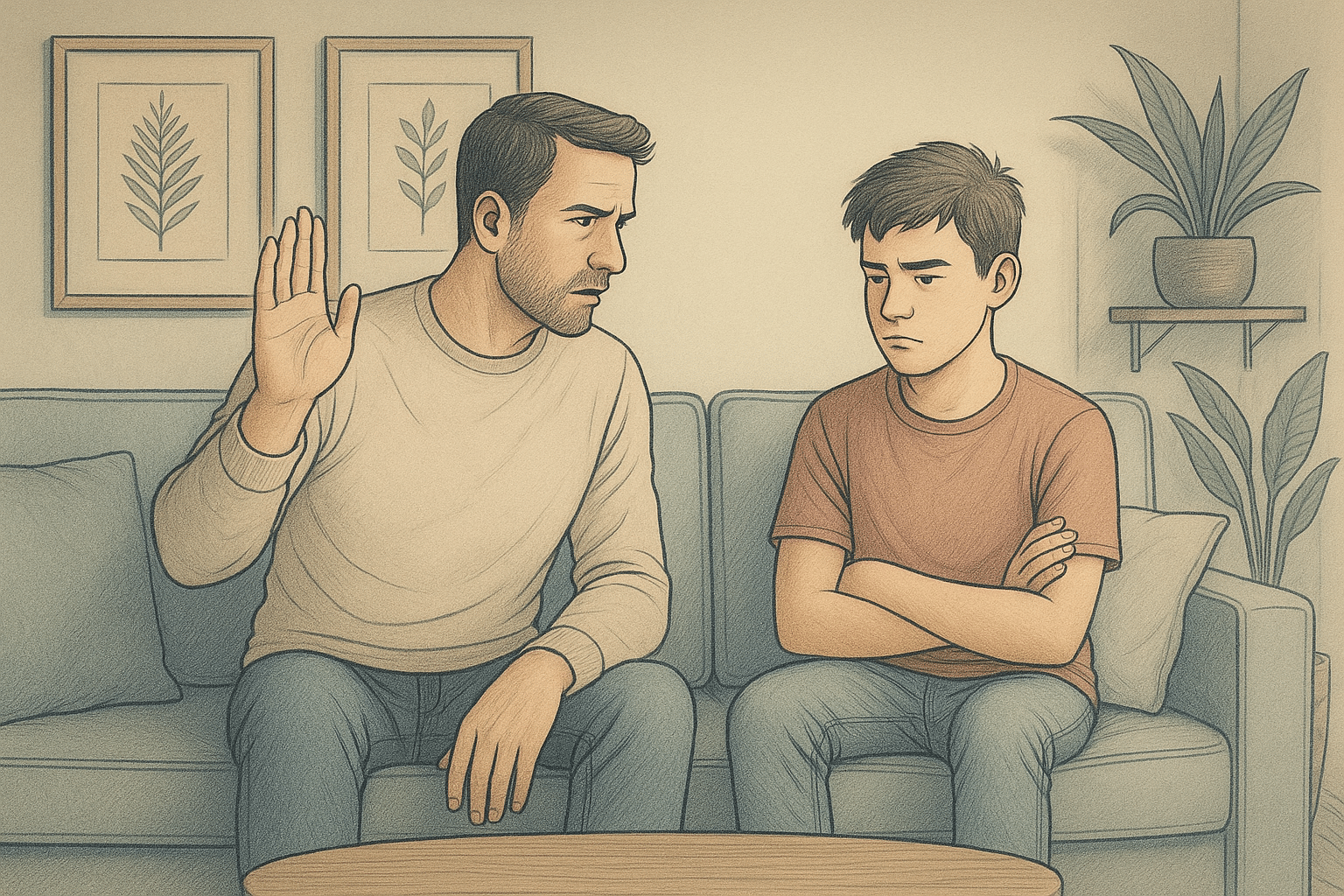
Boundaries are essential for teens with ADHD, but how you establish them makes all the difference.
Clear, concise rules work better than vague expectations. Instead of saying “be responsible,” specify “homework starts at 7 pm at the kitchen table with the phone in the basket.”
When discussing boundaries, use a collaborative approach: “Here’s what I need to see happen. What do you think would help you meet this expectation?”
Write down agreed-upon expectations and review them regularly. When boundaries are tested, and they will be, respond consistently without escalating into power struggles.
2. Self-Control: Managing Your Reactions First

Self-control might seem like something your teen needs to develop, but it actually starts with you.
Parents who manage their own emotional responses effectively have teens who develop better self-regulation skills. Your calm presence during heated moments does more than prevent escalation—it literally teaches your teen’s brain how to respond to frustration.
This doesn’t mean suppressing your emotions or walking on eggshells. Rather, be a model for healthy emotional management. When you feel triggered by your teen’s behavior, know that ADHD behaviors are largely neurological, not intentional disrespect. Taking this perspective helps create the emotional distance needed to respond thoughtfully rather than reactively.
Recognizing Your Emotional Triggers
Every parent has specific behaviors that push their emotional buttons. For parents of teens with ADHD, common triggers include repeated requests, apparent disregard for consequences, and seeming indifference to important responsibilities.
Take time to identify your specific triggers and the emotions they evoke, whether frustration, helplessness, or worry about your teen’s future.
Modeling the Behavior You Want to See
Teens with ADHD are constantly watching how you handle frustration, setbacks, and conflicts. When you make a mistake, use it as an opportunity to demonstrate accountability by acknowledging it, apologizing if needed, and showing how to make amends.
This modeling is particularly powerful because the ADHD brain learns better from demonstration than instruction.
3. Compassion: Understanding the ADHD Teen Brain
Compassion fundamentally shifts how you interpret your teen’s behavior. Instead of seeing laziness, defiance, or carelessness, you recognize these behaviors as manifestations of executive function challenges.
This perspective change doesn’t excuse problematic behavior, but it does allow you to address the real issues rather than misattributing symptoms to character flaws.
The Science Behind Executive Function Delays
Research shows that the brains of teens with ADHD develop differently, particularly in regions controlling attention, impulse control, and emotional regulation.
The prefrontal cortex, responsible for executive functions, may develop up to 3–5 years behind schedule in adolescents with ADHD. These neurological differences aren’t visible but profoundly impact daily functioning.
Separating the Teen from Their Behavior
One of the most powerful shifts parents can make is distinguishing between who your teen is and what their ADHD causes them to do. Your teen isn’t trying to be forgetful, disorganized, or emotionally reactive, these are symptoms of their neurological difference.
This distinction helps maintain your positive connection even during challenging behaviors.
4. Collaboration: Working With Your Teen, Not Against Them
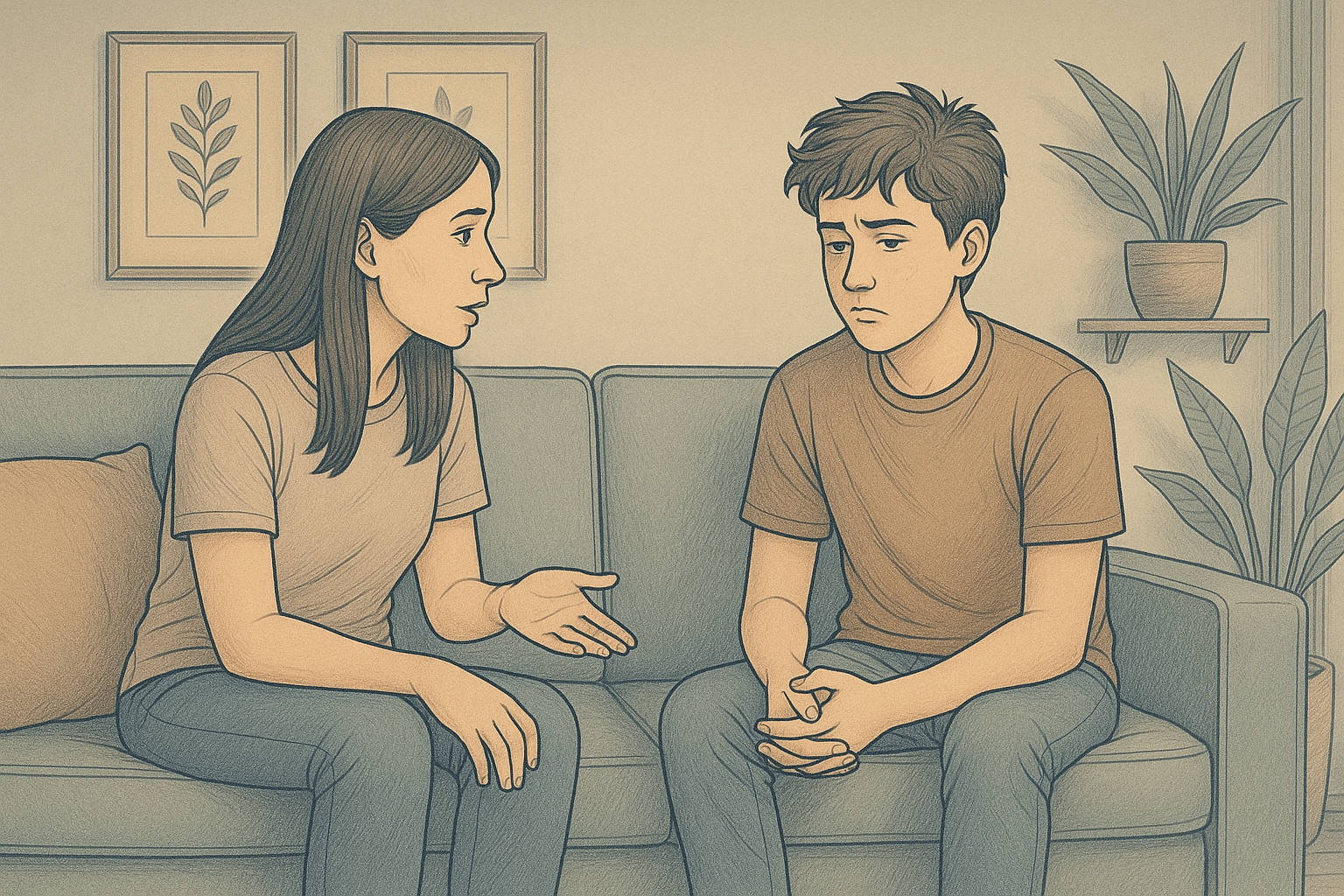
Collaboration transforms the parent-teen relationship from adversarial to cooperative.
Rather than imposing solutions that trigger resistance, collaboration engages your teen’s problem-solving abilities and respects their growing need for autonomy.
This approach builds critical executive function skills while preserving your relationship.
Problem-Solving Together vs. Imposing Solutions
When issues arise, whether academic struggles, missed responsibilities, or social conflicts, invite your teen into the problem-solving process.
Start with curious questions: “What do you think is getting in the way here?” or “What solutions might work for this situation?” Listen openly to their ideas before offering your own.
This respects their autonomy while still providing guidance. The imperfect solutions your teen helps create will be more effective than perfect solutions they resist.
Creating Systems That Your Teen Helps Design
The most effective organizational systems incorporate your teen’s preferences and processing style. Include them in designing homework spaces, morning routines, or technology guidelines.
Ask questions like “Would a visual checklist or reminders on your phone work better for you?” Their input increases both the system’s effectiveness and their commitment to using it.
5. Celebration: The Strategy That Changes Everything
The ADHD brain has altered reward circuitry that makes it harder to stay motivated by distant or abstract rewards. Regular celebration of effort and incremental progress provides the dopamine boosts that help rewire motivation pathways over time.
This strategy counters the negativity bias that many teens with ADHD develop after years of correction and criticism. By intentionally noticing and acknowledging positive efforts, not just perfect outcomes, you help your teen build a more balanced self-perception and increase their resilience when facing challenges.
Specific Ways to Celebrate Effort, Not Just Results
The most effective celebrations are immediate, specific, and genuine. Avoid generic praise like “good job” in favor of detailed observations that help your teen connect their efforts with positive outcomes.
Even a simple “I noticed…” statement drawing attention to a small improvement can be powerful in reshaping how teens with ADHD view themselves.
Celebration doesn’t always mean rewards or prizes. Often, sincere verbal recognition holds the most emotional value, especially when it highlights qualities your teen values in themselves.
Creating a Positive Feedback Loop That Builds Confidence
Regular celebration creates a virtuous cycle that transforms both behavior and self-perception. As your teen receives more positive feedback, their confidence grows, making them more willing to tackle challenges and persist through difficulties.
This increased effort leads to more successes, which create more opportunities for celebration, continuing the positive cycle.
Mission Prep: Helping ADHD Teens with Specialized Support
The 5 C’s framework—Consistency, Self-Control, Compassion, Collaboration, and Celebration—offers families a powerful, evidence-based approach to parenting teens with ADHD. However, some teens with ADHD require more intensive support than even the most dedicated parents can provide at home.

Visit Mission Prep for comprehensive ADHD treatment.
At Mission Prep, we understand that severe impulsivity, academic struggles, and family tensions sometimes necessitate comprehensive treatment. Our specialized ADHD programs combine the principles of the 5 C’s with intensive behavioral therapy, group counseling, and emotional regulation training in structured environments designed specifically for adolescent success.
Our residential approach doesn’t replace family involvement, it enhances it. Through family therapy and collaborative treatment planning, we help parents implement the 5 C’s more effectively while giving teens the intensive support they need to develop lasting self-regulation skills. When the challenges of ADHD overwhelm your family’s resources, Mission Prep provides the specialized care that transforms struggle into sustainable success.
Frequently Asked Questions
What should I do when the 5 C’s aren’t working during a crisis?
Focus solely on de-escalation and safety during acute crises rather than teaching or problem-solving. Use simple, direct language, maintain calm, and remove stimulating factors.
After everyone is calm, which might be hours later, apply the 5 C’s framework to process what happened and develop preventive strategies. These intense episodes reflect regulatory challenges, not deliberate choices.
How can I help my ADHD teen with school when they refuse my support?
Transition to a consultant role by asking what support would feel helpful to them. Options include peer tutors, homework coaches, or digital tools providing structure without parental oversight.
Collaborate with teachers and school counselors for supports that respect growing independence while addressing ADHD challenges. Sometimes stepping back strategically is more effective than pushing against resistance.
Should I tell my teen’s teachers about their ADHD diagnosis?
Include your teen in this decision, balancing privacy concerns with need for academic support. If disclosing, provide specific information about how ADHD affects learning along with effective strategies.
Focus on strengths, challenges, and request regular communication. Whether or not you formally disclose, maintaining collaborative teacher relationships creates beneficial support networks.
When might families need Mission Prep’s residential treatment for teens with ADHD?
Mission Prep’s residential programs become valuable when ADHD challenges exceed what can be managed at home or in traditional settings.
Consider our specialized services if teens show severe impulsivity leading to unsafe behaviors, intense academic struggles affecting self-esteem and future prospects, or family tensions straining relationships.
Our immersive environments provide behavioral therapy, emotional regulation training, and comprehensive family support to help teens develop effective coping strategies and self-regulation skills.





